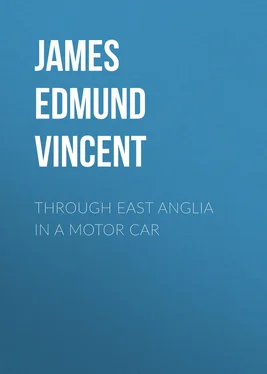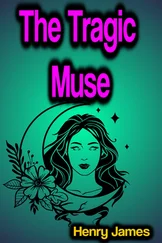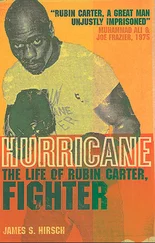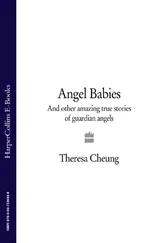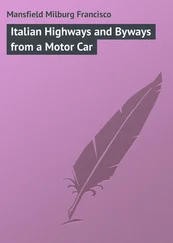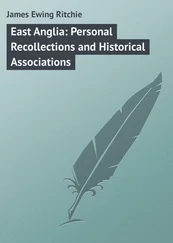James Vincent - Through East Anglia in a Motor Car
Здесь есть возможность читать онлайн «James Vincent - Through East Anglia in a Motor Car» — ознакомительный отрывок электронной книги совершенно бесплатно, а после прочтения отрывка купить полную версию. В некоторых случаях можно слушать аудио, скачать через торрент в формате fb2 и присутствует краткое содержание. Жанр: Путешествия и география, foreign_antique, foreign_prose, на английском языке. Описание произведения, (предисловие) а так же отзывы посетителей доступны на портале библиотеки ЛибКат.
- Название:Through East Anglia in a Motor Car
- Автор:
- Жанр:
- Год:неизвестен
- ISBN:нет данных
- Рейтинг книги:3 / 5. Голосов: 1
-
Избранное:Добавить в избранное
- Отзывы:
-
Ваша оценка:
- 60
- 1
- 2
- 3
- 4
- 5
Through East Anglia in a Motor Car: краткое содержание, описание и аннотация
Предлагаем к чтению аннотацию, описание, краткое содержание или предисловие (зависит от того, что написал сам автор книги «Through East Anglia in a Motor Car»). Если вы не нашли необходимую информацию о книге — напишите в комментариях, мы постараемся отыскать её.
Through East Anglia in a Motor Car — читать онлайн ознакомительный отрывок
Ниже представлен текст книги, разбитый по страницам. Система сохранения места последней прочитанной страницы, позволяет с удобством читать онлайн бесплатно книгу «Through East Anglia in a Motor Car», без необходимости каждый раз заново искать на чём Вы остановились. Поставьте закладку, и сможете в любой момент перейти на страницу, на которой закончили чтение.
Интервал:
Закладка:
Leland, in fact, cannot be commended, but that is only because he planned his magnum opus , like many a good man before him and after, without regard to the allotted span of human life, not to speak of its uncertainty. In his "Newe Yeare's Gyft to King Henry the viii in the xxxvii Yeare of his Raygne," Leland talks of his studies, of his six years of travel, and then sketches his plan. It is "to write an History, to the which I entende to adscribe this Title, De Antiquitate Britannica or els Civilis Historia . And this Worke I entende to divide yn to so many Bookes as there be Shires yn England and Sheres and greate Dominions in Wales. So that I esteme that this Volume will include a fiftie Bookes, wherof each one severally shaul conteyne the Beginninges Encreaces, and memorable Actes of the chief Tounes and Castelles of the Province allottid to hit." Leland died when he was forty-six, but if he had lived another century he could hardly have achieved his self-imposed task, even if he had been miraculously endowed with a Mercédès; and he cherished divers other projects. As it is, his so-called Itinerary is, at best, but a collection of rough notes, having frequently no sort of coherence, often corrected or added to later in a distant geographical connection. In spite of a taste for antiquity it may be put down as stiff and heavy to read, and not sufficiently abounding in quaintness to repay the trouble of the reader.
The Paston Letters on the other hand, are the best of reading, giving a wonderfully vivid idea of life in East Anglia at a singularly troublous period, and there will be occasion to quote them more than once. The edition by the worthy Sir John Fenn, stately as it is, and a joy to handle, is far from being the best. Posterity owes to him a deep debt for rescuing the letters from oblivion, but he omitted as uninteresting precisely the little fragments upon private and domestic affairs which we value most now in later editions. His notes, too, prove him to have been a rather dull dog and lacking in a sense of humour. Sometimes he scents impropriety where there is clearly none, at others he misconstrues the most obvious badinage. Thus, where John Paston is addressed in the phrase, "Wishing you joy of all your ladies," Fenn suggests a reference to the Virgin Mary, Heaven knows why. Still, Fenn rescued the letters, and the latest edition—far more complete than his—is at once one of the most entertaining and valuable of historical documents and essential to the right understanding of life in old Norfolk. In fact, the Paston Letters is one of the few really old books which a man not too studiously inclined may not prudently be contented to take as read. It is vastly entertaining, but, it must be said, it is not for the young person. A spade was not called a horticultural implement in those days, and there are many spades, and some knaves of spades too, in the Paston Letters .
Fortified with this literary foundation, and a good deal more of minor importance, I left my Berkshire home near Abingdon on 9 March in a 30-h.p. Rolls-Royce car, six-cylindered and equipped with every luxury in the shape of glass-screens and a cape hood, and driven by Mr. Claude Johnson. For companions we had my two daughters, and for assistance, if it were needed, a mechanic. As it happened there was not a particle of trouble with tires, engine, or apparatus of any kind during the 300 miles and more of this expedition, and we might have dispensed quite well with the mechanic, and with his weight. Indeed, at the end of the little tour, and for that matter after the next on another car, arose a feeling that the days of the uncertainty of motor-cars were over. Need it be said that Nemesis was in waiting for this sanguine feeling, and that, before my "travelling days were o'er" in East Anglia, one of those extraordinary runs of misfortune came, which, in motoring more than in any other pastime, justify the sayings that troubles never come singly, that it never rains but it pours? It is perhaps wise to make this statement now, for a record of motoring wherein all was plain sailing—the metaphor is hardly mixed, for there is kinship between the motion of a sailing craft running free and that of a car in good tune—might run the risk of being dull. How our troubles were turned into a positive pleasure, at the time as well as in retrospect, by the skill, patience, and good humour of this same Mr. Claude Johnson, shall be told in its proper place in another chapter.
One thing, however, may be said by way of preliminary to the account of this particular tour. There was much controversy at the beginning of 1905 upon the question whether the movement of a six-cylinder petrol car is, or is not, more luxurious than that of a four-cylinder car of first-rate design and construction. A prolonged match, not entirely free from flukes, the bane of motoring trials, has been held by way of attempt to decide the issue; and it has ended in favour of six cylinders, as illustrated by the identical car in which this tour was taken. The controversy will probably go on for ever, none the less, for it is the old case of de gustibus which can never be settled, and it is all but impossible to compare memories of kindred sensations felt at different times. Who can say, for example, which cigar, glass of old wine, sail on a strong breeze, gallop over the Downs, run in a first-rate motor-car, dive into cool water, which—almost what you will, so long as it be one of the pleasures classified by old Aristotle as coming into being through the touch—was absolutely the best of his life? Without scientific certainty, however, there may be strong conviction, and mine is that a good six-cylinder, whether Rolls-Royce or Napier, runs more smoothly than any four-cylinder car, and I have tried nearly all the best of them. In fact, there is very little to choose in point of smooth running, if indeed there be anything to choose at all, between it and a White steam car, used on another East Anglian tour. Tried by the, to me, infallible touchstone of my own spine, a six-cylinder is a very little, but still distinctly, more luxurious than the best four-cylinder car; but this is not to say that there are not a round dozen of four-cylinder cars on the market which make their passengers as comfortable as any man, or even delicate woman, can reasonably wish to be in this world.
We started just after ten, on a windy and rainless morning, in an atmosphere giving beautifully clear views of distant objects, and thereby raising some reasonable apprehensions for the morrow among the weather-wise. Our route lay outside my present manor until Royston was reached, for it was through Dorchester, Thame, Aylesbury, Ivinghoe, Dunstable, Luton, Hitchin, and Baldock; and the temptation to describe some of it, especially the run along the Chilterns, is strong, but it must be resisted. One observation, however, must be made. From Thame onwards, in spite of the tendency of our road system to radiate from London obstinately as in Roman times, much as our railways do, and as if cross-country travelling were not a thing to be encouraged, there was little reason to complain of want of directness in the road. But to journey from Abingdon to Thame it is necessary to go round two sides of a rough but large triangle, whether the route chosen be through Oxford, distant six miles, or through Dorchester and Shillingford, which is rather longer. In either case the traveller has been compelled to go a long way out of his true course, and from the turning point to Thame is about the same distance in both cases. To Royston the distance is, as nearly as may be, seventy miles, and the last part of the run, where we followed the north-west edge of the Chilterns, cutting in and out of Hertfordshire, Bedfordshire, and Cambridgeshire in bewildering succession, was very exhilarating. A pretty sight too were the Chilterns, with their swelling undulations of down turf, marked out near Royston for galloping grounds and showing here and there, in the form of a flag and a carefully tended green, that the golfer has found his way to Royston. Indeed, this close down turf, this "skin" of grass catching the full force of northerly and westerly gales, is suitable to the golfer's needs as any save that of seaside links.
Читать дальшеИнтервал:
Закладка:
Похожие книги на «Through East Anglia in a Motor Car»
Представляем Вашему вниманию похожие книги на «Through East Anglia in a Motor Car» списком для выбора. Мы отобрали схожую по названию и смыслу литературу в надежде предоставить читателям больше вариантов отыскать новые, интересные, ещё непрочитанные произведения.
Обсуждение, отзывы о книге «Through East Anglia in a Motor Car» и просто собственные мнения читателей. Оставьте ваши комментарии, напишите, что Вы думаете о произведении, его смысле или главных героях. Укажите что конкретно понравилось, а что нет, и почему Вы так считаете.
